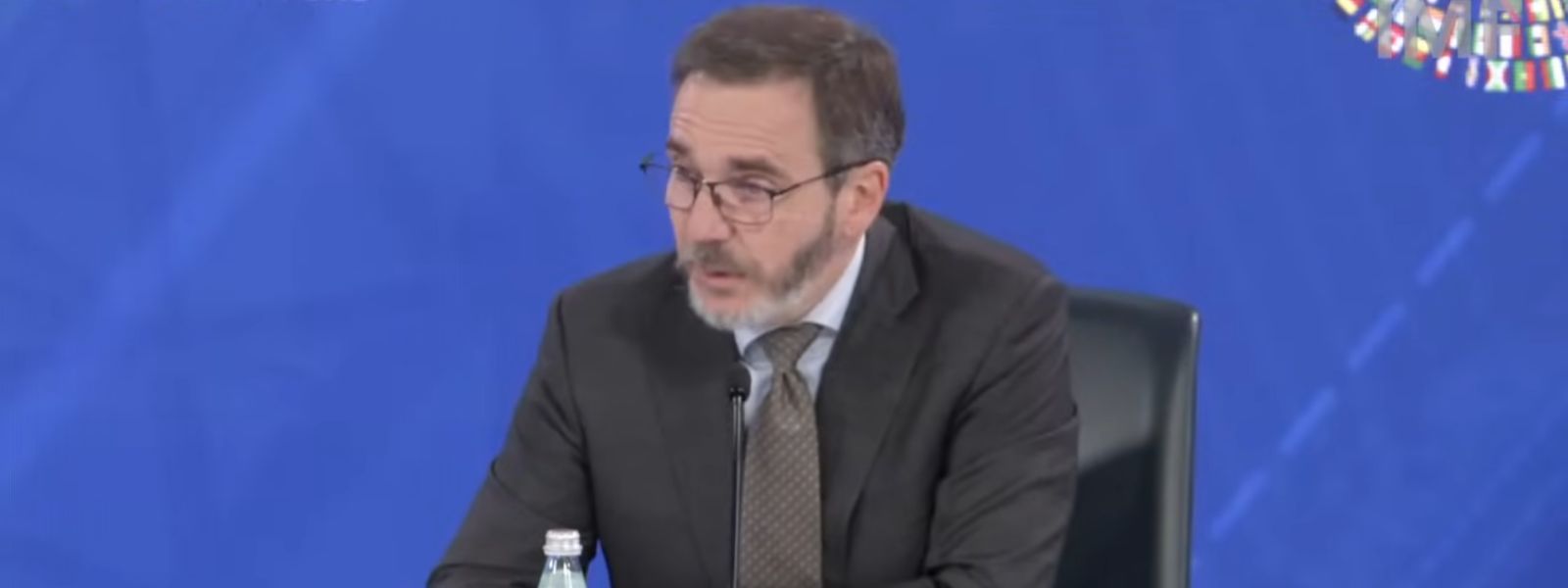.webp)

IMF: AI Boom Could Lift Productivity, But Bubble Risks Shadow Recovery
COLOMBO (News 1st); Global trade disruptions remain a key driver of economic uncertainty, but other risks are rapidly gaining prominence, according to the International Monetary Fund (IMF).
Speaking on the global outlook, Pierre‑Olivier Gourinchas, Director of the IMF’s Research Department, noted that while the impact of recent U.S. tariffs has been less severe than initially feared, growth prospects remain subdued and vulnerable to shocks.
“Global trade developments continue to shape the outlook, but other drivers are increasingly coming into the picture,” Gourinchas said. “Six months on, the growth downgrade is at the modest end of the range, with growth projected at 3.2 percent this year and 3.1 percent next year, while inflation has increased modestly and is proving more persistent.”
He attributed the limited impact to smaller-than-expected tariff shocks, trade exemptions, and private sector agility in rerouting supply chains.
Loose financial conditions and expansionary fiscal policies in major economies, alongside booming AI-driven investment in the U.S., also cushioned the blow.
However, Gourinchas warned that the tariff shock is still dimming growth prospects, particularly in the U.S., where labor markets are weakening and inflation remains above target.
Looking ahead, Gourinchas flagged four major downside risks:
Tech Boom Vulnerabilities – Echoes of the late 1990s dot-com bubble are evident in today’s AI-driven investment surge, raising concerns about asset repricing and financial spillovers.
China’s Structural Challenges – Persistent property sector weakness and heavy reliance on subsidized strategic industries risk misallocation and slower productivity gains.
Fiscal Fragility – Many countries have failed to rebuild fiscal space, leaving them exposed to higher interest rates, elevated debt, and social unrest risks.
Pressure on Central Banks – Rising calls to ease monetary policy threaten credibility and inflation control, a lesson history warns against.
Despite these risks, Gourinchas stressed that the outlook is not entirely bleak:
“Resolving policy uncertainty with clearer trade agreements and lower tariffs can help boost output. AI has the potential to increase productivity. Improved domestic policies—restoring fiscal space, ensuring independent monetary policy, and investing in future growth—will go a long way to strengthen resilience.”
Other Articles
Featured News





.png )



-811728_550x300.jpg)

-811710_550x300.jpg)




-810262_550x300.jpg)
-809496_550x300.jpg)











.webp)






